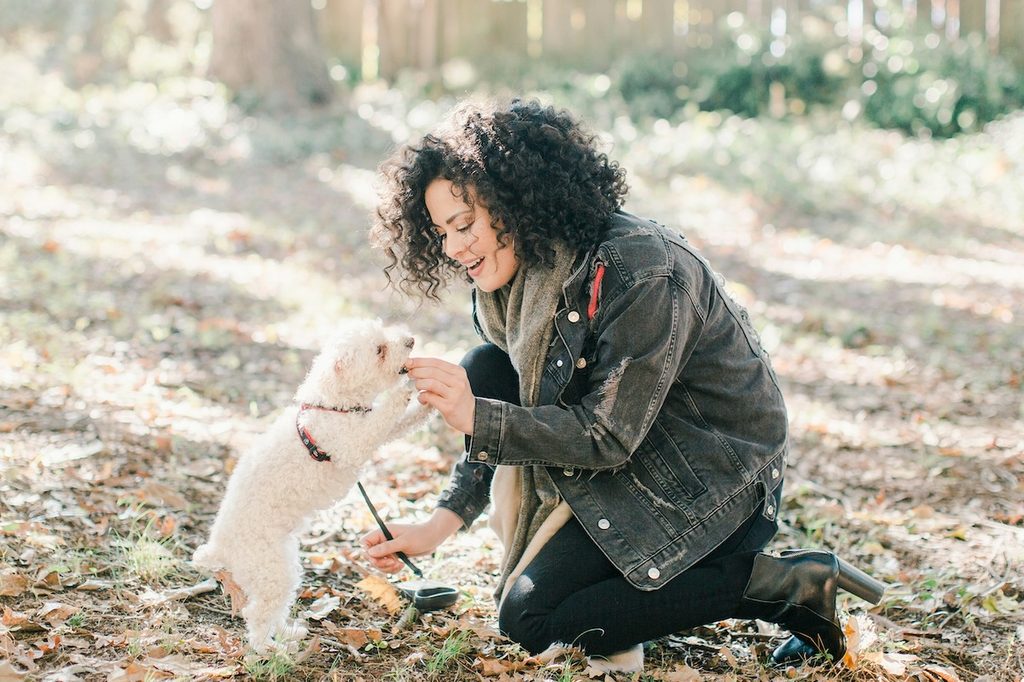
You may crave cashews on the regular. A mild and buttery nut from the tropical evergreen Anacardium occidentale, a tree native to South America, cashews are a great addition to trail mixes, oatmeals, and yogurts, but they also shine as a solo snack.
You may be tempted to give your dog cashews. Those big, brown eyes and adorably curious personalities are hard to resist. Yet, you know what they say about curiosity and cats. Does it apply to dogs and cashews? Can dogs eat cashews? Are they safe? These are good questions to ask. Some foods, like chocolate, are toxic for dogs. Where do cashews stand? Let’s dig in.
Can dogs eat cashews?

Cashews aren’t toxic to dogs. Feeding a dog a small piece of cashew likely won’t pose an immediate threat, and you won’t need to ring up Poison Control if your dog eats a cashew you accidentally dropped on the floor. However, cashews aren’t the greatest treat for dogs and should be given sparingly.
Cashews contain a ton of fat and protein. Consuming too much fat can trigger pancreatitis, which is a life-threatening condition that requires prompt medical assistance to treat and manage. Additionally, high-fat diets (and extra calories) can lead to weight gain and obesity.
Sometimes, cashews are seasoned with salt, which can cause GI discomfort and potentially salt toxicity. Cashews can also be choking hazards for dogs, regardless of their size.
How to serve a dog cashews
While cashews should be an every-once-in-a-while treat, dogs can safely consume them here and there. If you’re sold on treating your dog cashews, follow these tips to keep your furry best friend safe and healthy:
- Avoid nut mixes. Macadamia nuts are often mixed with cashews. Ditto for chocolate. These foods are toxic to dogs. Only give your dog a cashew.
- Give unseasoned cashews. Too much salt can trigger salt toxicity. Flags that your dog may have salt toxicity include vomiting and diarrhea.
- Provide small pieces. While cashews are softer than harder nuts like almonds, they still pose a choking hazard to breeds of any size. Give small pieces and monitor your dog as they consume the cashew.
- Allergies. While rare, dogs may be allergic to cashews. Call the vet if swelling, itching, or hives present after your dog consumes cashews.
If your dog experiences allergies or GI discomfort, avoid giving them cashews in the future.
Generally, dogs can safely consume cashews. The nut doesn’t pose a risk of harm. However, you’ll want to follow some ground rules. Be sure that you’re only giving a dog cashews. Often, cashews come in a mix of nuts. Macadamia nuts are toxic to dogs. Avoid giving your dog salt-seasoned cashews, as they can trigger GI discomfort. Look out for signs your dog’s body didn’t take well to cashews, like vomiting. If these signs occur, avoid giving your dog cashews, and call your vet if they persist. Finally, cashews are high in fat, so make them a sometimes treat and ensure most of your pet’s diet is coming from dog food.




